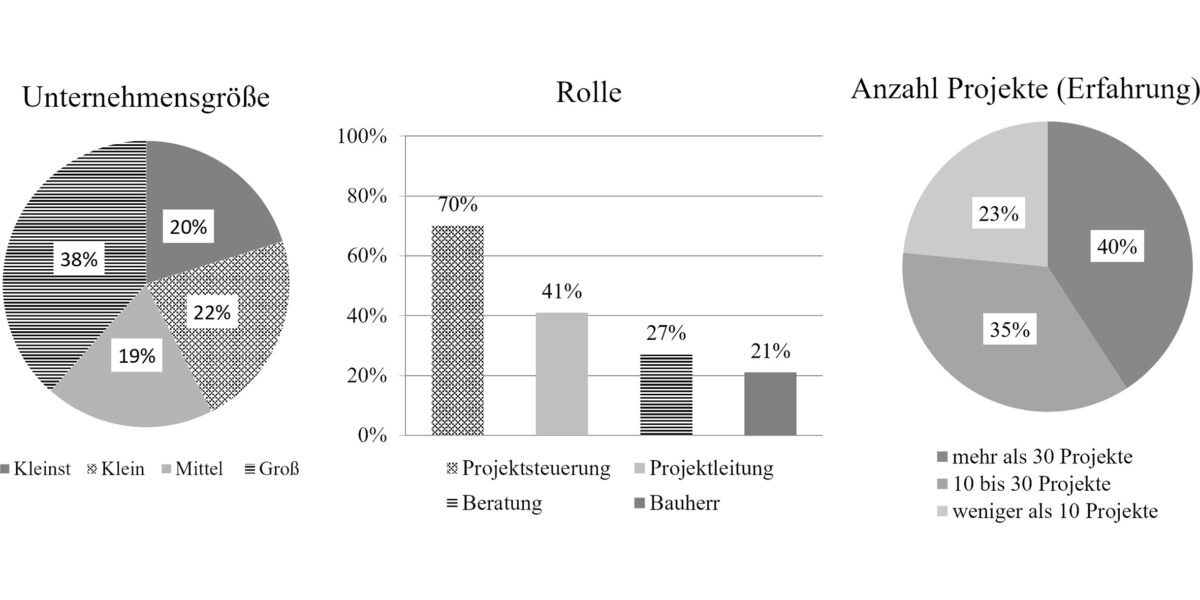Ansätze zur Reduktion von systematischen Planungsfehlschlüssen in der Rahmenterminplanung von Bauprojekten –Ergebnisse einer explorativen Studie

Univariate Ergebnisse zur Organisationsgröße, Rolle und Anzahl beteiligter Projekte. Grafik: Autoren
S. Lauble, S. Haghsheno
Bauingenieur Jahrgang 99 (2024) Heft 12
Publikationsdatum: 05.12.2024
doi.org/10.37544/0005-6650-2024-12-66
Zusammenfassung Die reibungslose und zeitgerechte Durchführung von Bauprojekten stellt für zahlreiche Projektbeteiligte ein gemeinsames Ziel dar. Trotz umfangreicher Forschungsarbeiten zur Analyse der Ursachen von Abweichungen sind Planungsfehlschlüsse weiterhin ein weit verbreitetes Thema in Forschung und Praxis. Daher wird in diesem Beitrag der Einfluss strategischer Ansätze zur Reduktion von Planungsfehlschlüssen in der Rahmenterminplanung bei Bauprojekten untersucht. Zu diesem Zweck wurde eine explorative Studie mit 131 Teilnehmern unter Experten im Bauprojektmanagement aus Deutschland durchgeführt, um statistisch signifikante Ansätze zu identifizieren. Mittels einer explorativen Faktorenanalyse (EFA) wurde ein Vier-Faktoren-Framework entwickelt und dessen Korrelation mit der Planungsqualität geprüft. Die Ergebnisse zeigen, dass eine verbesserte Informationsstruktur, insbesondere durch strukturierte Datenbanken, zu weniger Abweichungen führt. Dies könnte zukünftige Techniken wie Vorhersagemodelle unterstützen.
Strategies to reduce systematic planning errors in master scheduling in construction projects – results of an explorative study
Abstract The smooth and timely execution of construction projects without additional measures is a common goal for many project participants. Despite extensive research intoanalyzing the causes of deviations, planning errors are still a widespread topic in research and practice. This article therefore examines the influence of strategic approaches to reducing planning errors in construction projects. To this end, an exploratory study was conducted with 131 participants, who are experts in construction project management in Germany, to identify statistically significant approaches. An exploratory factor analysis (EFA) was employed to develop a four-factor framework and examine its correlation with planning quality. The findings indicate that an enhanced information structure, particularly through structured databases, is associated with a reduction in deviations. This could inform the development of future techniques such as forecasting models.
